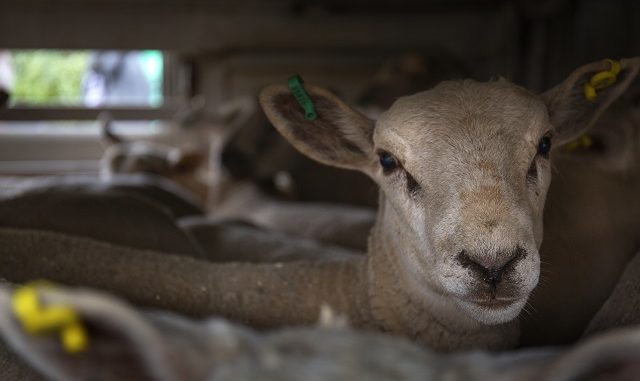
Animal welfare campaigners are celebrating after the live export of animals abroad for fattening and slaughter has finally been banned from Great Britain.
The RSPCA has labelled “one of the biggest days for animal welfare in modern history”.
Yesterday (May 14), Members of the House of Lords voted in favour of the Animal Welfare (Livestock Exports) Bill passing the final stage of its parliamentary journey.
The law, which will now go on for Royal Assent, will outlaw the export of animals from Great Britain for fattening or slaughter.
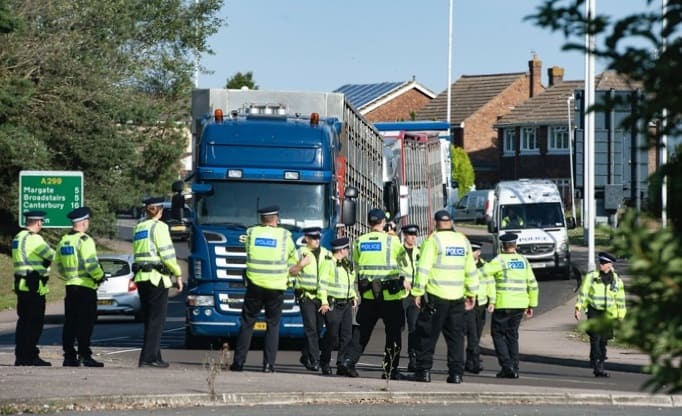
The RSPCA, supporters and groups such as Kent Action Against Live Exports (KAALE) have been campaigning for many years to secure an end to the gruelling journeys of livestock exported abroad for further fattening and slaughter.
Transported animals, many of which travelled from Ramsgate aboard the vessel Jolene, have long endured crowded, gruelling and dangerous journeys on trucks – leading to mental exhaustion, injury, hunger, dehydration and stress.
Millions of farm animals have been through these journeys – some lasting for over 100 hours – when being sent abroad in cramped and poor conditions.
UK Government data shows up to 40 million farm animals, including sheep, calves and pigs, have been exported from Britain for further rearing or slaughter since the 1960s – equating to thousands every single week, or dozens every hour.
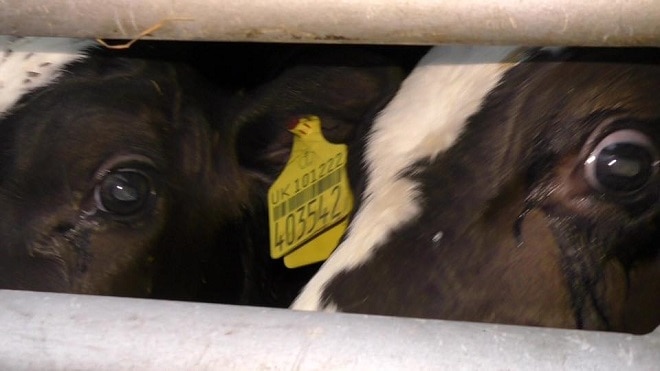
At its height, one million animals were being exported annually from ports such as Dover, Ramsgate and Brightlingsea.
Emma Slawinski, the RSPCA’s Director for Advocacy, said: “This is a momentous moment for animals – with this vote marking one of the biggest days for animal welfare in modern history.
“Sadly, I’ve witnessed up close the reality of these exports and the impact they have on animals.
“I’ll forever be haunted by the smell that comes off an export truck, and the calls of the animals inside which can still be heard as the ship leaves the port and sails into the distance. Every time I talk about the live exports of animals, that smell and those sounds come back to me.
“Fortunately, after so many years campaigning, the mental exhaustion, injury, hunger, dehydration and stress animals are at risk of on these cruel journeys will now – once and for all – be consigned to the history books in this country.”
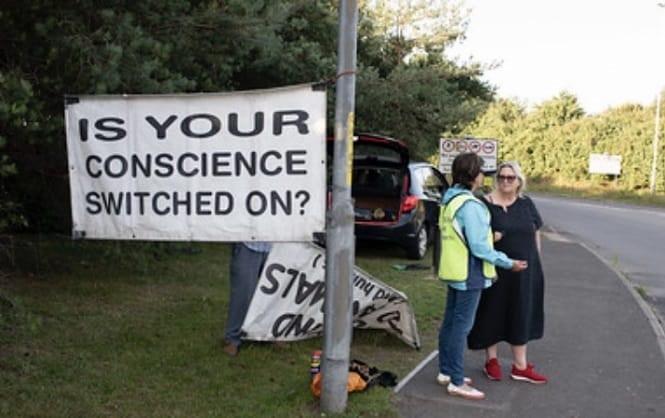
The RSPCA says “people power” has been a driving factor in helping the Bill over the line – as it looks to create a one-million strong movement for animal welfare in its 200th anniversary year.
Over the years, countless signatures have been gathered on petitions, thousands have attended protest marches, and weekly demonstrations have taken place from members of the public at UK ports.
Later this week, and following the successful vote in the Lords, the RSPCA is set to team up with fellow campaign groups Compassion in World Farming and Kent Action Against Live Exports, to project a celebratory message onto the White Cliffs of Dover to mark the victory.
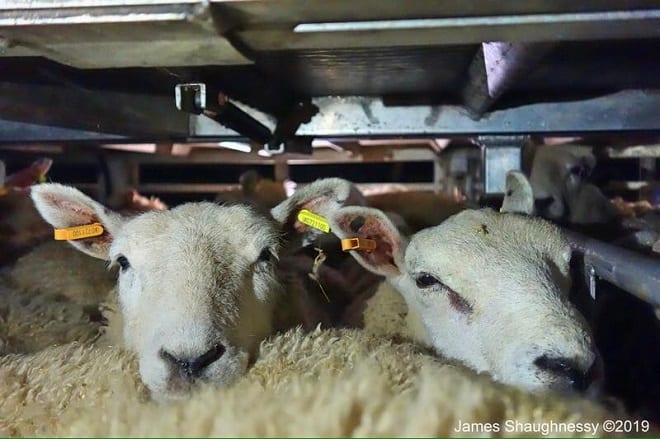
KAALE chairman Ian Birchall said: “Groups and individuals working together have ensured that this unnecessary and cruel trade has been banned.
“It is decades overdue, but at last we have a ban on the export of live animals for slaughter or further fattening.
“KAALE attended every single shipment from 1995, recording vehicle numbers, livestock details and journey lengths. We published reports and sent them to government officials and other interested parties.
“We suppled photographic evidence of the suffering the animals endured and highlighted regulation breaches which increased this suffering. We gave these animals a voice.
“Without this evidence, the live export trade would still be flourishing. Sheep and calves would still be travelling across Europe simply to die. They would still be enduring extremes of temperatures in the lorries and crossing the English Channel on the open deck of an unsuitable vessel.
“We thank everyone who helped and supported us in our mission to get this evil trade banned and we remember those who are no longer with us to celebrate this momentous day but who dedicated their time and effort towards its success.”
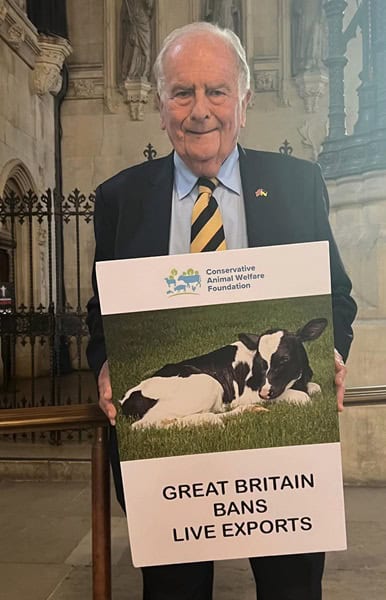
Sir Roger Gale, MP for North Thanet and, said: “I’m delighted to see that the Animal Welfare Bill will now become law.
“The UK is a nation of animal lovers, and the fact that sheep, cattle and other animals were facing uncomfortable and possibly life-threatening conditions when being moved abroad was unacceptable.
“This new legislation puts those wrongs right by banning live exports for fattening and slaughter – delivering on a key manifesto pledge and securing the dignity of animals in the future.”
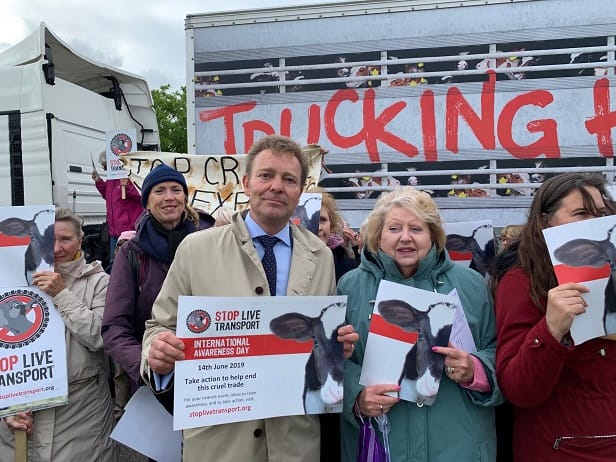
South Thanet MP Craig Mackinlay added: “It’s great news that the export of live animals for fattening and slaughter has been banned. This marks a hugely important development for animal welfare.
“I congratulate all those involved in the campaign locally over many years, particularly Ian and Yvonne Birchall and everyone at Kent Action Against Live Exports.
“Stopping once-and-for-all this foul and inhumane trade from Ramsgate Port has been a totemic issue for me that I’ve raised repeatedly in Parliament.
“The ban delivers on a key Manifesto commitment – only possible now we’re out of the EU.”
In 2012 the then-ruling Labour group at Thanet council banned exports from Ramsgate after 47 sheep died at the port in September of that year but they were forced to make a U-turn by the High Court.
TDC paid more than £5.1 million in compensation to individuals and companies involved in the export of live farm animals from the port of Ramsgate for loss of trade.
The claims followed a High Court ruling in December 2013 that TDC’s ban was unlawful and in breach of EU free trade regulations.

